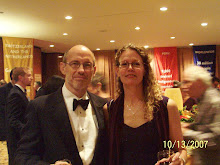No such thing as "Domestic" AIDS problem
Dear Editor,
Dr. Blumenthal and Melissa Shive make a good case for renewed focus on addressing the global HIV/AIDS pandemic more here at home. It was shocking to read in their column that DC infection rates are greater than many impoverished Third World countries.
Their plea for more funding however would be more persuasive if they included a few over vital bits of information.
First, the failed to make clear that the AIDS RNA based virus has an extraordinarily high mutation rate of about 1%. That means that in every person infected with HIV there is a potential for about 2 million variations of this lethal virus produced each day. Most variations are insignificant but some lead to new strains of the virus that are resistant to our best treatments. This makes speed and scope of US and global treatment and prevention efforts are vital to putting AIDS in “the history books” and preventing the evolution of the virus that could become airborne or water borne. Viruses are efficient at trading gene segments with other viruses and sometimes they are incorporated into bacteria. With nearly a third of all HIV/AIDS deaths the result of TB infections and already a lacking global health infrastructure to deal with it and other deadly or disabling infectious agents it is incomparably urgent to address global health needs from a more comprehensive perspective.
Recent genetic analysis of the origins of the AIDS virus determined that it first entered the United States in the early 1970s via a Haitian air lines steward. I just returned from Haiti this week where increasing poverty as a result of food and oil price increases are putting more Haitians at risk of infections. As many as 1000 people a day fly out of Port-au-Prince for Miami or New York. We will fail to address the AIDS threat if we make a distinction between foreign and domestic infections, AIDS or TB, poverty or ignorance.
Only a comprehensive focus on global health infrastructure, basic education, adequate nutrition, clean water and sanitation, political and environmental stability, and adequate sustainable economic growth will protect us from what former Secretary of State and Joint Military Chief of Staff, Colin Powell once said was a greater threat to our national security than Al Qaeda.
There is no shortage of money if political leaders were willing to put human security needs above their misplaced patronage of ‘national sovereignty’. A micro tax on global currency speculation could yield the resources needed for such a comprehensive global/domestic approach while also contributing to increasing global economic stability. That was the original idea of the “Tobin tax” that helped Economics Professor James Tobin win the Nobel prize in Economics nearly 30 years ago.
Pathogens change. Let’s hope our politicians can.


0 Comments:
Post a Comment
<< Home